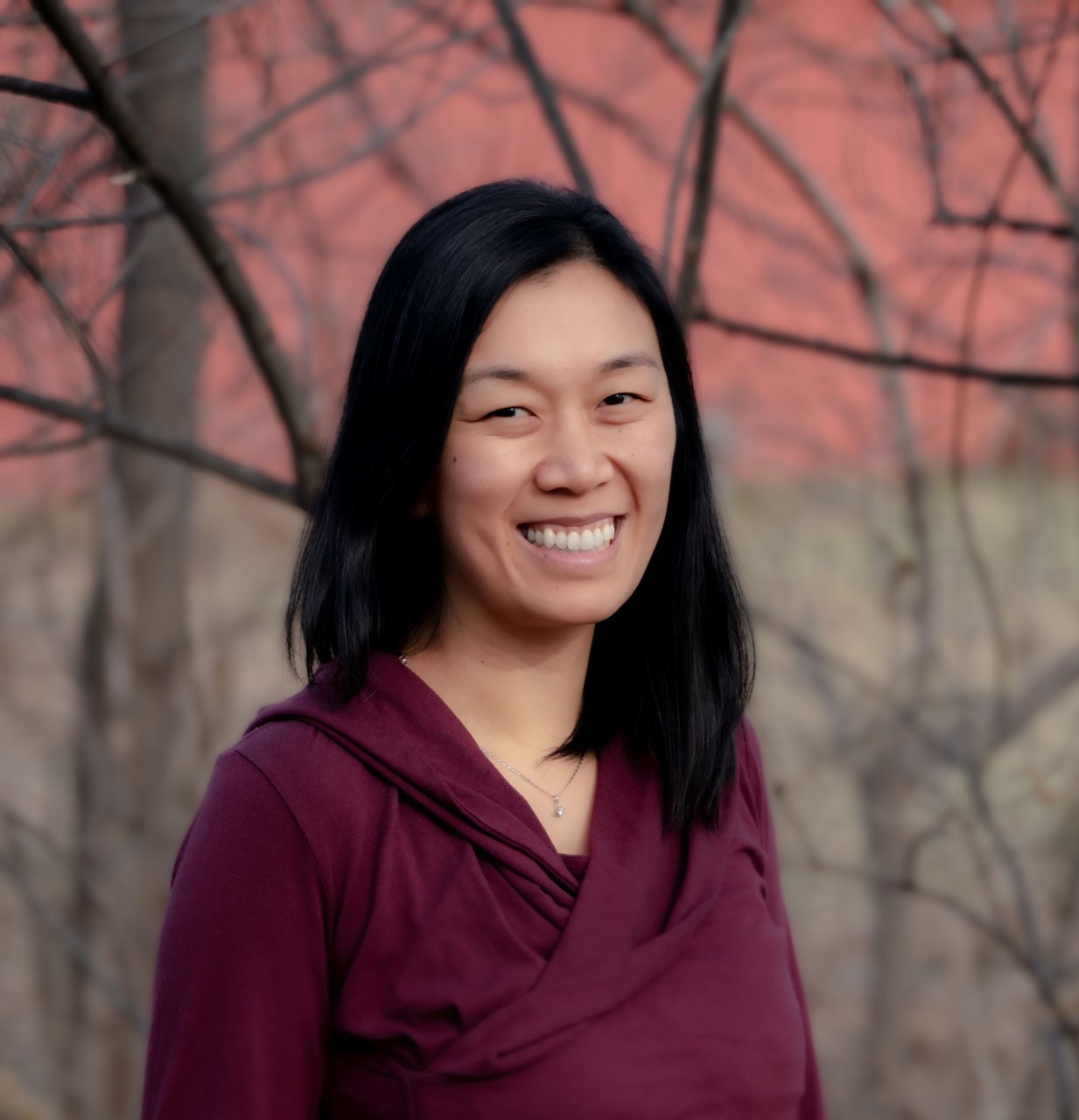
The Au Sable Institute is a Christian environmental education center in Mancelona, Michigan. This post is the second of five excerpts from Au Sable Institute’s 2021 workbook Liturgies of Restoration ¸ a five-week study on how our habits can shape us into people who serve, protect, and restore God’s earth. Additional practices and resources mentioned here may be found in the workbook. Graduate students and emerging scholars can order copies of the workbook and also sign up for a fall online workbook study hosted by Au Sable Institute by clicking here. We thank Liuan Huska and the Au Sable Institute for sharing these resources with the Emerging Scholars Network. [Editor’s note: Some parts of the following reflection reflect its being written for Au Sable’s in-person program.]
____________________
“I give you a new commandment, that you love one another.
Just as I have loved you, you also should love one another.
By this everyone will know that you are my disciples, if you have love for one another.”
John 13:35
First, we are called to worship. Then, Jesus commands us to “Love your neighbor as yourself,” second only to the first and greatest command to love God (Matt. 22:39). Becoming God’s people of restoration can’t happen without being in community. In fact, relationship sits at the very heart of the universe.
We read in the Bible that a triune God created the world. The Holy Spirit—the third person of the Trinity—hovered over the waters (Gen. 1:2). God created all things in and through Christ, the second person of the Trinity (Col. 1:15-17). When God created people, he said, “Let us make humankind in our image, according to our likeness . . .” (Gen. 1:26, italics added). We are made in the image of a relational God-in-three-persons, ever loving, ever vulnerable to one another.
Justin Whitmel Earley writes, “Everything in the universe has its roots in friendship. That means the longing to be in right relationship with other people and things is at the heart of every molecule in existence—and most powerfully in our hearts.”[i] This desire also lies at the heart of Au Sable: we seek to gain knowledge, skills, and ethical groundings so we can relate rightly to God’s earth.
Our time at Au Sable is short—just a few weeks. This is usually not long enough to establish deep relationships. But because of the nature of our program, we get to eat, sleep, wash dishes, study, play, and worship alongside the same small group of people. Many opportunities will arise to be vulnerable, speak honestly, forgive, and love one another. We have a chance, in this short time, to embody the worshipping, loving community that Jesus calls us to, with one another and with the rest of God’s creation.
Yet our ingrained habits don’t always facilitate this kind of connection. We’ve become accustomed to digital interactions and less comfortable with face-to-face conversation (maybe even more so in the pandemic). While there are many things to appreciate about digital connections, many forms (such as social media or texting) have a way of dividing our attention and allowing us to sidestep the deep work of in-person interactions.
Digital interactions are safer. “You can rehearse and edit what you say. You can hide the furious blush spreading across your face. There are no uncomfortable silences where people are simply present together, waiting for others to respond or figuring out how to respond themselves. If there’s a pause in a text or online thread, you assume that other people are busy managing their ten other digital interactions. If you don’t know what to say next, you can pretend that you are the busy one.”[ii] Media scholar Sherry Turkle’s interviewees thought that unrehearsed, “real-time” conversations made a person “unnecessarily” vulnerable.[iii]
But there is a level of relational depth that can only happen with real-time vulnerability. The other person sees your splotchy face from crying earlier. Or you can’t hide your blush from not telling the full truth. Face-to-face conversation is risky and vulnerable, for sure. It means someone might get uncomfortable. The other person might laugh at or judge or simply dismiss something you share from the heart. You might be misunderstood. You might get hurt or hurt someone else. And you might be seen and known. The last possibility is both utterly terrifying and utterly exhilarating. What if we could really be ourselves with each other? What if we could find acceptance and grace when we show up to other people as the complex, unfinished, awkward, and wounded human beings we are?
You may have experienced glimmers of this kind of community in your family or church or among friends. Perhaps it is something you are still looking for. Or maybe you’ve been burned in relationships and are afraid to show up in a real way again. If that is the case, seeking counseling through your church or through a trained therapist might be the healthiest next step. It takes time to heal to a point where you can take the risk of relationship again. But we must start that healing journey because deep, life-to-life relationships are what we were made for.
Liturgy and Counter-Liturgy #2:
We thrive in community, partnering with others to bring about flourishing.
vs.
We must become independent of others to succeed.
Even so, our society can teach the opposite. Digital technologies train us to engage in shallow “sips” of conversation instead of drinking deeply.[iv] In addition, our production-oriented economy teaches us that independence is a virtue. “Successful” people in our society are those who are wealthy (financially independent), able-bodied (physically independent), mobile (independent of ties to place), and powerful (they can do what they want without accountability).
Compare that to the teachings of Jesus from his Sermon on the Mount (Matt. 5:1-11). Jesus’ definition of “blessed” includes those who are poor, mourning, meek, hungry and thirsty, merciful, pure in heart, peacemakers, and persecuted. This stands in stark contrast to our society’s definition of success. Jesus centers vulnerability, humility, and reliance on God and others, not ourselves.
How can we become this kind of blessed, beloved community during our time at Au Sable and beyond? We can start with three things: courage, intentionality, and forgiveness. We need courage to take the risk of showing up to other people. It might not go smoothly—and it certainly won’t be a scripted Hollywood scene—but it will be real. We can trust that when we show up to others, God is at work. His spirit is actively bringing others to meet us halfway.
We also need to be intentional. How can we prioritize relationships if we don’t make the time to talk?[v] This year at Au Sable we have created space for students to meet regularly in small groups. As much as we learn in the classroom, some of the deepest and most enduring lessons are those we learn from one another.
Finally, we practice forgiveness. Real-time community is messy because we humans are imperfect. We constantly do and say things that hurt others, intentionally or not. “It’s so important that we keep forgiving one another—not once in a while, but every moment of life,” writes the Catholic priest Henri Nouwen. “Before you have had your breakfast, you have already had at least three opportunities to forgive people, because your mind is already wondering, What will they think about me? What will he or she do? How will they use me?”[vi]
We have resources within our faith to practice courage, intentionality, and forgiveness. “We love because [God] first loved us” (1 John 4:19), says the apostle John, who calls himself “the disciple whom Jesus loved” (John 21:20). We courageously reach out to others because God first reached out to us. We forgive because God forgives us. We make time for relationships because God is eternally calling us into communion with himself. Out of this communion with the divine, we learn new ways of relating to one another. And, as we’ll see in the next chapter, we find new ways of relating to the rest of God’s creation.
____________________
[i] Earley, 97. Bolded type added.
[ii] Liuan Huska, Hurting Yet Whole: Reconciling Body and Spirit in Chronic Pain and Illness (Downers Grove, IL: InterVarsity, 2020), 105-106.
[iii] Sherry Turkle, Reclaiming Conversation: The Power of Talk in a Digital Age (New York: Penguin Books, 2015), 142.
[iv] Sherry Turkle, “The Flight From Conversation,” The New York Times, April 21, 2012, https://www.nytimes.com/2012/04/22/opinion/sunday/the-flight-from-conversation.html/.
[v] Earley, 100.
[vi] Henri Nouwen, “From Solitude to Community to Ministry: Jesus Established the True Sequence of Spiritual Work,” Christianity Today, April 1, 1995, https://www.christianitytoday.com/pastors/1995/spring/5l280.html.

Liuan Huska is a freelance journalist and writer at the intersection of faith, environment, health, and culture. She has bylines in Sojourners, Christianity Today, Psychology Today, Hyphen, The Christian Century, and other publications. She is also the author of Hurting Yet Whole: Reconciling Body and Spirit in Chronic Pain and Illness, a book weaving theology, sociocultural analysis, and memoir. She lives in the Chicago area, on ancestral Potawatomi land, with her husband and three children.

Leave a Reply